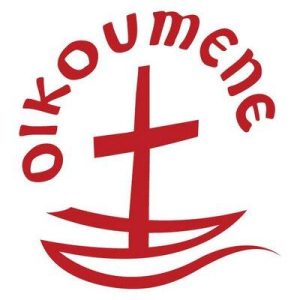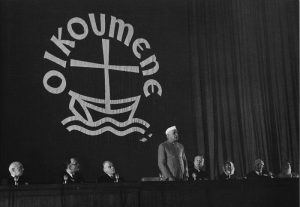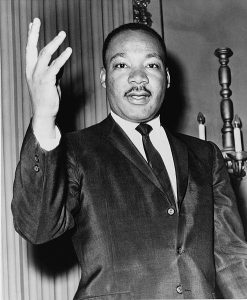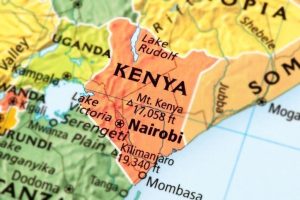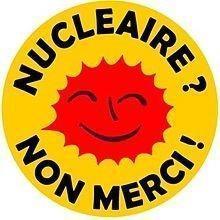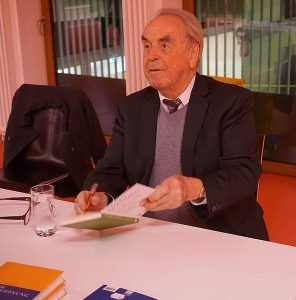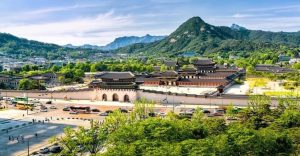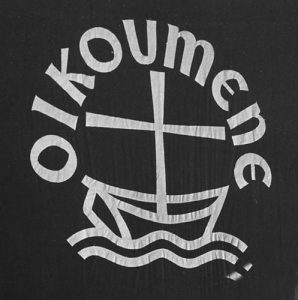1948, Assembly in Amsterdam, the Netherlands, ‘Man’s Disorder and God’s Design’
351 representatives from 147 churches attended the first assembly of the Ecumenical World Council of Churches (WCC). They came mainly from Europe and the United States. The different debates highlighted the vocation of the WCC as an entity where Christians of various ecclesial cultures and traditions could dialog, exchange, confront and reflect. It is especially a working place engaging member Churches in theological reflection with a particular attention to social and political problems. The 1948 Constitution was committed to pursuing the work undertaken by the Faith and Order and Life and Work movements that had evolved after the Edinburgh Conference in 1910.
1954, Assembly in Evanston, USA, ‘Christ – the Hope of the World’
502 representatives from 179 Churches met in Illinois. The context of the Cold War intensified by the rising of McCarthyism in the United States created a difficult situation. Debates were on social issues coming out of the international economic development and the missions that could help handle them, i.e. the responsibility of the Churches, the role of lay people in their work environment, among others. The representatives could not come to a final common declaration. But new collaborations were set up and new lines of debate were initiated.
1961, Assembly in New Delhi, India, ‘Jesus Christ – the Light of the World’
Since Evanston 23 Churches as well as the International Missionary Council asked to be members of the WCC. Several of them were former mission churches that had become independent. They were from Africa, Asia, the Caribbean, South America, the Middle-East and the Pacific region. Others were Orthodox Churches from Russia, Bulgaria and Romania.
Each numbered 5,000 members, without a necessarily being linked to a State. Thus the representatives from 198 Churches met on the Indian continent. Besides, as the Vatican II Council was about to meet, the Catholic Church sent five observers for the first time. New Delhi was chosen because the WCC wished to develop encounters with non Christian religions.
During this important congress the assembly asked its members to accept the following principle: ‘The WCC is a fellowship of Churches that confess Jesus Christ as Lord and Saviour according to the Scriptures and try to meet their common calling for the glory alone of God, the Father, the Son and the Holy Ghost’.
After the congress and though some Unitarian Churches left the WCC, the number of member Churches continued to increase.
1968, Assembly in Uppsala, Sweden, ‘Behold I make all things new’.
704 representatives from 224 Churches. Fifteen Roman Catholic observers attended in a euphoric Ecumenical atmosphere. The main themes on the agenda were universality (catholicity) of the Church, renewal in mission, economic and social development, justice and peace.
Matin Luther King’s assassination, the growing student movements, war in Biafra, changes in South America, led to the Assembly reflecting on political issues. Some delegates disagreed with this trend which risked confusing salvation with projects of social justice they deemed too utopian, and not really in assent with Christian hope.
1975, Assembly in Nairobi, Kenya, ‘Jesus Christ Frees and Unites’.
The Assembly in Nairobi was confronted by the diversity of newly admitted Churches to the WCC. Diversity was enriching, though the specificities demanded by some communities could cause misunderstandings. The final report asked the Churches to
- ‘move to a visible unity in one faith and in one Eucharistic community, expressed in worship and in common life in Christ’
- ‘advance unity so the world may ’
The Assembly mandated the WCC, as a Council of Churches, the goal of helping communities to preach a Gospel of justice, peace and reconciliation, and to help them encourage the respect of Human Rights.
1983, Assembly in Vancouver, Canada, ‘Jesus Christ - the Life of the World’.
850 representatives attended the Assembly in Vancouver. Some of the work, especially suggested by Churches of the Pacific Islands, tackled the problem of peace at a time of the nuclear arms race. The theme ‘Justice, Peace, integrity of creation’ with its protection of the environment aspect started to emerge.
1991, Assembly in Canberra, Australia, ‘Come Holy Spirit – Renew the Whole Creation’
A number of representatives attending the assembly belonged to Churches in the minority compared to the majority religions in their countries. They were not so much interested in the dialogue but in a theology for God who is coming, the life giving energy of the Holy Spirit, to quote the theologian Jürgen Moltmann. They largely contributed to the debates integrating ecological problems in the approach of world disorders.
The Gulf War, the weaknesses of the Middle-East, the pressure of financial deregulations were obvious issues in the debates of the assembly, but recommendations remained general with the respect for international law and the peaceful settlement of conflicts. Conversely, active and fruitful discussions about the Holy Spirit and messianic hope were conducted by representatives of minority Churches and Orthodox Churches.
1998, Assembly in Harare, Zimbabwe, ‘Turn to God – Rejoice in Hope’.
The Assembly celebrated two anniversaries namely the fiftieth anniversary of the First Assembly of the WCC and the fiftieth anniversary of the Universal Declaration of Human Rights.
The debates addressed important matters such as:
- The problems of the WCC’s involvement in a period of its decreasing financial resources. The problem was due to the demise of some member Churches. It was meaningful to reassert the WCC’s missions within trinity theology: ‘The first goal of the fellowship of churches that constitute the Ecumenical World Council of Churches is to provide a space where they can call one another to seek the visible unity in one faith and one Eucharistic community manifested in worshipping and in communal life in Christ, through witnessing and helping the world, that they may be one so that the world can believe.’
- Particular attention was paid to very unsteady and unequal economic and social conditions in African countries. Nelson Mandela gave an important speech.
- Particular attention was also paid to acknowledging minorities in the religious and political fields, notably about the role of women, the status of homosexuals, the perception of disabilities.
2006, Assembly in Porto Alegre, Brazil, ‘God in your grace transform the world’
The Assembly notably pursued a difficult discussion between Evangelical and Orthodox Churches. It b became impossible to reach a common definition of the action of the Holy Spirit in the world or on the meaning of messianic hope: was it in the actual future or was it eschatological? Coming to an agreement on mission priorities was not easy, all the more so as the WCC’s financial resources continued decreasing.
The Assembly met at the same time as the anti-globalisation Forum. It could not be indifferent to the debates launched in the same city Porto Alegre. In fact the Forum, considering the world economic order, was worried about the disorders caused by the deregulation of financial markets and by the modes of development of some multinational companies.
2013, Assembly in Busan, Republic of Korea, ‘God of life, lead us to justice and peace.’
The agenda of the Assembly in the Republic of Korea offered an in-depth reflection on the status of the two Korea(s). Moreover, at the request of its hosting country, the problem of judicial and political rights, to which too many religious minorities did not have access, was highlighted.
Besides these themes, the Assembly remembered the Armenian Genocide. It was worried about wars in the Near and Middle East, about tragic events in Congo Kinshasa, about migratory movements: ‘We see refugees trying to come into Europe for various reasons, because of climactic changes to political upheavals. On the international level we should henceforth pay it greater attention.’

